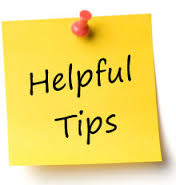
Interview tips hold the potential to be the differentiating factor between a successful interview and a missed opportunity.
These invaluable insights provide the guidance necessary to navigate the intricate process of impressing potential employers.
Whether you are a seasoned professional aiming for career advancement or a recent graduate stepping into the job market, understanding and implementing effective interview strategies is crucial to outshining your competition.
In this article, we will unravel the power of interview tips, equipping you with the knowledge and skills needed to confidently showcase your strengths and secure that coveted job offer.
Get ready to embark on a transformative journey toward interview success!
Mastering the Art of Success: Essential Interview Tips
1. Practice Common Interview Questions
- Practice answering common interview questions such as “Tell me about yourself,” “Why do you want to work here?” and “What are your strengths and weaknesses?” Prepare clear and concise responses that highlight your relevant skills and experiences.
2. Demonstrate Your Skills and Successes
- Give concrete examples of how you have contributed to your previous or current roles and how they are relevant to the job you want. Use the STAR technique (Situation, Task, Action, Result) to organize your answers and tell a clear story.
How to Make a Good Impression in an Interview
3. Good eye contact
- Good eye contact is vital as it shows you are confident and are telling the truth. If you have difficulty making good eye contact look at their forehead.
4. Have good body posture
- There is nothing worse than slouching during an interview. If you slouch it looks like you are not interested. Good posture will also prevent you from mumbling.
5. Speech
- Try not to speak too quickly or slowly during the interview. Speaking too quickly will make you sound nervous and speaking too slowly will make you sound boring. If possible, try and practice out loud the night before.
- Studies reveal that in general the people who get hired are those who mix speaking and listening fifty-fifty in the interview. SO DON’T RAMBLE!
- Studies have also revealed that when it is your turn to speak or answer a question you should not plan on speaking for more than two minutes.
How to Be Punctual and Prepared
6. Arrive 10 minutes early
- Be sure to arrive 10 minutes early for your interview. There is nothing worse than arriving late to the interview. If you arrive late, you will more than likely arrive late during your shift so why should they hire you? Remember not to arrive too early as you will seem nervous and lack confidence. Arriving too early will make you more nervous and make the interviewer feel rushed.
7. Map out the interview location and know where you are going
- Make sure you know where you are going and how long it takes to get there. Go online and work out the easiest way to get there, then be sure to add on extra time so you are on time. The last thing you want is to arrive late.
8. What to bring
- Bring a pen and paper to write and an extra copy of your resume. Interviewers will appreciate if you come prepared. Often, the interviewer is busy and will forget to bring a copy of your resume.
How to Negotiate Your Salary
9. Salary
- Have an idea of what salary you are looking for. There are plenty of sites out there that will tell you if you are asking too much or too little.
- If you are unemployed and worried about asking for too little, then ask what the salary range is.
10. Prepare Questions to ask at the Interview
- Think of some insightful questions to ask the interviewer regarding the company, role, team, or any specific issues you have. Asking questions demonstrates your involvement and interest in the position.
11. Showcase your Teamwork and Communication Skills
- Employers appreciate candidates who collaborate and communicate well. Prepare to share examples of successful teamwork and strong communication.
How to Research the Company and the Job
12. Research the Company
- Learn about the organization’s mission, values, products/services, and latest news. This will show that you are interested and excited about the interview.
13. Understand the Job Requirements
- Review the job description carefully and find out what skills and qualifications are essential. Think of examples from your previous experiences that demonstrate how you have those skills and qualifications.
How to Dress for an Interview
14. What to wear
- You should always dress better than the interviewer. If you expect the interviewer to be in a tie wear a suit. If you are applying for a position that handles food make sure you are clean-shaven and if you have long hair make sure it is pulled back.
End of the Interview
15, Thank the Interviewer
- Send a personalized thank-you email or note after the interview to express your gratitude and interest. It’s a chance to impress and show your professionalism.
See Also
- 101 Great Answers to the Toughest Interview Questions (affiliate)
- The Interview Checklist
- General Interview Q&A
- The Behavioral Interview
- Interview Tips
- Search for Jobs